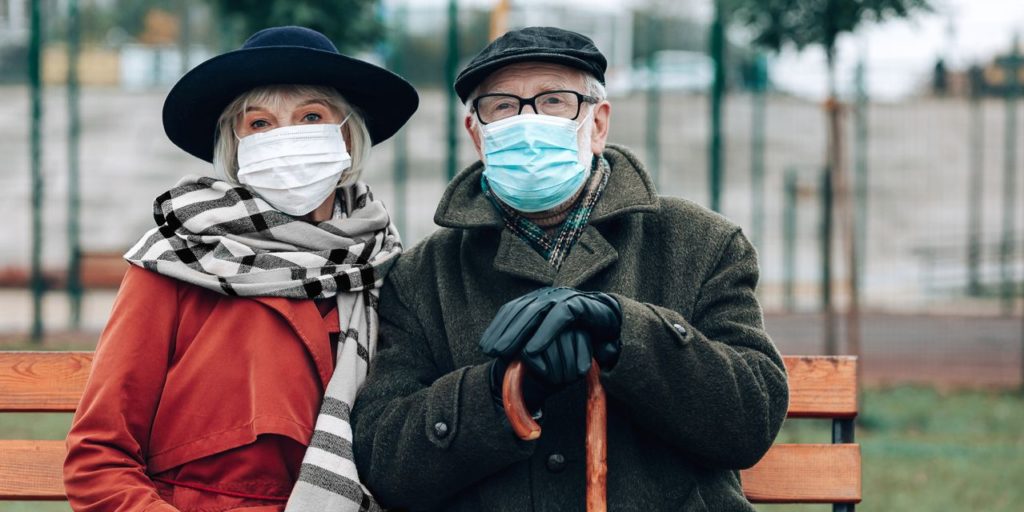The pandemic has given many folks a taste of what retirement could be like. An abrupt end to work. A loss of social connection. Trying to make ends meet on a much lower income. Many haven’t been happy with the experience.
Worried that your retirement could be similar? Here are eight lessons we can learn from the pandemic, all drawn from my new book.
1. Retirement can be a shock. In fact, it’s quite similar to what people experienced during the pandemic. Sure, it might have felt good for a little while, not having to set an alarm, not having to deal with a long, brutal commute and not having a demanding work schedule that left you exhausted. But at some point, being forced to shelter in place got a little irritating, and people began to feel antsy and depressed. Indeed, some started eating and drinking too much to mute the anxiety and tedium they were experiencing.
2. Life without work can be boring. The virus showed us how miserable our days can be if we have too much time on our hands. The weeks slowed to a crawl for people who couldn’t work. They had trouble remembering what day it was, because it didn’t matter. Without a plan for how to spend our time, this is how our retirement could be, too.
3. Strong relationships are crucial. During the pandemic, we’ve been forced to spend long periods of time alone, with little social interaction. Being isolated has made us appreciate the value of the relationships we have with family and friends. We all crave social connection—and we need to make sure our retirement plan addresses that need.
Read: Baby boomers face financial distress and age discrimination
4. Quitting work strains marriages. Once the pandemic’s initial restrictions were lifted, divorce applications spiked. Sadly, divorce rates among retirees are also on the rise, with dire emotional and financial consequences. Whether it’s retirement or a pandemic, many couples have trouble adjusting to increased togetherness.
5. Good health can save our life—and our finances. Older people, and people of any age who had serious underlying medical conditions such as hypertension, obesity, diabetes and cardiovascular disease, have been at greater risk of severe illness during the pandemic. To reduce the risk of ending up in a hospital and being put on a ventilator, it’s been crucial to stay healthy. The good news: Many of the pre-existing conditions that put us at greater risk can be reversed through positive lifestyle changes, such as exercising and eating right.
These are also key anti-aging strategies. Incorporating an exercise routine into our retirement, along with eating right, will lower the amount of money we’ll have to spend on health care, which is one of retirement’s largest expenses.
6. We need a purpose. During the pandemic’s initial lockdown, if we couldn’t work from home, there often wasn’t much for us to do that felt meaningful. Some of us woke up to the fact that having a job—any job—was far better than puttering around the house, killing time.
Similarly, when we retire, we need to fill the big hole left by the disappearance of our full-time job—something that replaces the positive aspects of our career, that’s challenging, that requires learning new things, that allows us to contribute and that makes us feel a part of something bigger.
7. Retirement often isn’t planned. It’s estimated that 42% of jobs eliminated during the pandemic aren’t coming back. That’s bad news for those near retirement age. There’s a perception that older workers want salaries that are too high, aren’t up to date on certain skills and won’t mesh well with younger colleagues.
Because of that perception, as the the economy recovers and hiring picks up, workers age 50 and older may find they’re last in line. It will likely take a long time for them to find a job and, in many cases, that job will come with a significant pay cut. Because of the lack of work opportunities, some people who were solidly middle class will be pushed into retirement earlier than they planned. They’ll be forced to draw on their retirement assets earlier than scheduled, with grim consequences for their retirement standard of living.
8. Maybe money can buy happiness. COVID-19 has given many families a taste of what it’s like to live on a limited income—an issue they could also face in retirement. Even those with a lot of money were miserable because there was no place to spend it. They couldn’t go on vacation or go to the mall. They were forced to self-isolate at home, experiencing firsthand how lackluster life can seem when we can’t use money to brighten our days. Our retirement could also be like that if we don’t prepare financially.
Has the pandemic left you frustrated and unhappy? My advice: Learn from that—and make sure your retirement doesn’t turn out to be a repeat.
This column originally appeared on Humble Dollar. It was republished with permission.
Mike Drak is a 38-year veteran of the financial services industry. He’s the author of Retirement Heaven or Hell, which was just published, as well as an earlier book, Victory Lap Retirement. Mike works with his wife, an investment adviser, to help clients design a fulfilling retirement. For more on Mike, head to BoomingEncore.com.

